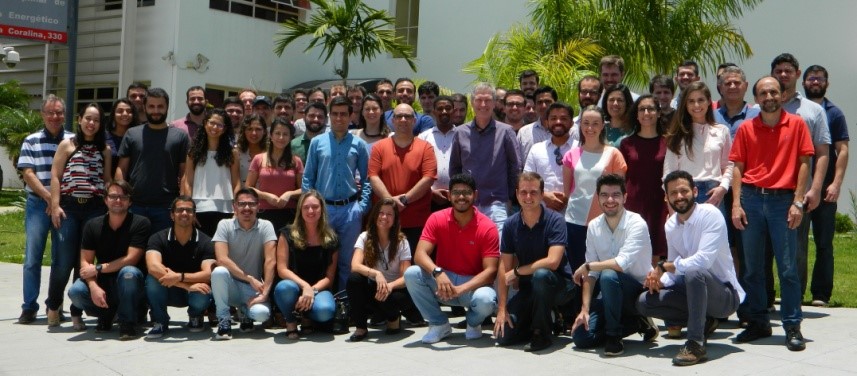
August 17, 2020
A three-year, Canadian $540,000 funding package from Energi Simulation is the focus of an Industrial Research Chair in Reservoir Management through Digital Fields Concepts, in the University of Campinas, UNICAMP, Brazil.
Energi Simulation will support a research chair in reservoir engineering, which will be led by Dr. Denis Schiozer. The chair will support a team of research associates and students in undertaking leading edge research in innovative methods for closed loop reservoir managements integration models and data.
“Energi Simulation is very pleased to renew Dr. Denis Schiozer’s Chair program, as his research team has been providing excellent reservoir management solutions to support the development of the prolific but challenging oilfields in Brazil. With strong support from major players in the industry, Dr. Schiozer’s digital oilfield management concept will be the first and only Energi Simulation Chair research program in the new era of digital transformation.”
Duke Anderson, President, Energi Simulation
The central idea of the Chair is to create a methodology for short- and long-term optimization of petroleum field based on UNICAMP’s 12-step methodology using data and simulation models of different fidelities. This methodology is being prepared to be used in digital reservoir management.
To achieve the general objective above, some important objectives are set:
- Study ways of integrating long- and short-term decisions;
- Study ways to use hybrid models (based on models and data) for field management;
- Study of the influence of model fidelity for each case (reservoir) and decision (stage of field development);
- Improve techniques to accelerate model responses;
- Develop short-term dynamic data assimilation techniques;
- Improve the decision-making process of control variables and field revitalization using models and data;
- Comparison of decisions based on different fidelity models and data.
Dr. Schiozer has over 30 years of experience in the area of reservoir management and simulation. Schiozer joined the faculty at UNICAMP in 1988 and holds a Ph.D. degree in Petroleum Engineering from Stanford University, an M.S. degree in Petroleum Engineering from University of Campinas (UNICAMP), a B.S. in Aeronautical Engineering from the Technological Institute of Aeronautics (ITA) and an M.B.A in Administration from Getúlio Vargas Foundation (FGV). He had more than 50 financed projects from the oil industries and has been coordinating UNISIM (Research group on Reservoir Simulation) for 23 years.
About UNICAMP
Unicamp was founded on October 5, 1966. It can be considered a young institution and one that has already developed a strong tradition in education, research and services to society. The project to create Unicamp was a response to the growing demand for qualified personnel in a region of the country – the State of São Paulo – that by the 1960s accounted for 40% of Brazil’s industrial capacity and 25% of its economically active population. Unicamp has three campuses which are home to 22 teaching and research Institutes and Schools. It also has a vast hospital complex; 23 interdisciplinary centers; two technical high schools; and a series of support units within a universe of about 50 thousand people in which thousands of research projects are carried out.
In 1987, the Center for Petroleum Studies (CEPETRO), graduate program in Petroleum Engineering and the Department of Petroleum Engineering (DEP) were created in order to enable broad cooperation between the two institutions and promote research and the training of human resources in oil. Today, CEPETRO has many research activities and many projects financed mainly by oil companies, state of São Paulo and ANP (Brazilian National Oil Agency). Brazil has a law that establish that part of the revenues from the oil industry must be invested in research in the country; this had a significant impact on the research in the petroleum areas in the country and yield a high number of cooperation agreements of CEPETRO and oil companies.
UNISIM, one of the laboratories of CEPETRO, was created in 1996 by a partnership between Petrobras, UNICAMP and FAPESP, with an agreement between the University and the companies for technological innovation. In August 2014, UNISIM achieved 23 years and had, as main results: more than 120 PhD and MSc. students, more than 530 articles, 50 funded projects and several awards.
For more information please contact:
Duke Anderson, President
duke.anderson@energisimulation.com
Energi Simulation
or
Denis J. Schiozer
denis@unicamp.br
CEPETRO/FEM/UNICAMP